COVID-19: Safeguarding ‘Most Vulnerable Population’
Barring visitors is the most stringent measure that Jewish HomeLife is taking to prevent the spread of the disease.
Dave Schechter is a veteran journalist whose career includes writing and producing reports from Israel and elsewhere in the Middle East.
Sandra Schwartz is a soon-to-be 86-year-old resident of Berman Commons, who enjoys attending concerts, plays and films, and visiting with her family.
For the indefinite future, however, such activities are on hold.
The elderly are among those at the highest risk of contracting the coronavirus, or COVID-19. The need to protect their health and engage in “social distancing” can be further isolating for this population.
Jewish HomeLife, which operates Berman Commons and other Atlanta-area facilities that care for the elderly, is barring visitors and discouraging residents from going out, other than for necessary medical treatment.
“I personally think it’s the smartest thing they could do,” Schwartz said. “If one person in here gets the coronavirus, we’re all dead ducks. I really feel that not
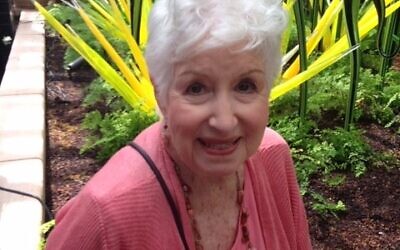
having anyone come in is the smartest thing they could do and not letting people go out and get exposed is absolutely necessary because people will take advantage.”
The restrictions, which Jewish HomeLife has increased during the past week, are just one example of the escalating response within the Jewish community to the disease. That prohibition on visitors extends to those elderly living in private residences who receive care through the agency. The one exception are people in hospice, who are permitted visitors, whose own health will be checked before entering.
While acknowledging that the restrictions could be emotionally challenging for both residents and families, Harley Tabak, president and CEO of Jewish HomeLife, told the AJT that “especially in our independent and assisted living communities, most of the residents and families are relieved that we’re doing this.”
Jewish HomeLife operates nine facilities that offer different levels of care, depending on need, at sites on Howell Mill Road in Atlanta, and in Dunwoody and Johns Creek. Tabak, said that on any given day JHL cares for about 400 people in its residential facilities and about 300 living in private residences. Its clients range in age from 62 to the 100s. The vast majority in the residential facilities are in their 80s and 90s.
Jewish HomeLife also employs about 450 people at its facilities. Employees as well as vendors, couriers and contractors, both those on-campus and in private homes, are checked regularly before entering the buildings. Thus far, none have developed COVID-19, Tabak said.
“We’ve instituted an incident command center, where we meet every day to review our medical practices and procedures,” he said. Tabak praised the guidance from Dr. R. Elliott Jackson, primary medical director for The William Breman Jewish Home, whose specialty is geriatric medicine; Dr. Alex Rikhter, an internist and medical director of Weinstein Hospice, and two infectious disease specialists, Dr. Phyllis Kozarsky, who has more than 25 years’ experience with the Centers for Disease Control and Prevention, and Dr. David Rimland, who also has decades of experience.
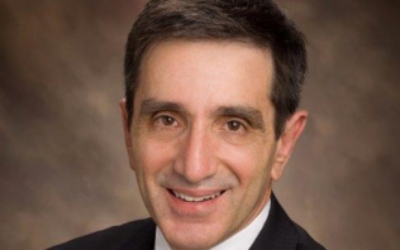
“They are guiding all of our practices. They are literally, every single day, as late as last night, emailing me and texting me and preparing us for any changes,” Tabak said. “We also get regular communication directly from the CDC, the Centers for Medicare & Medicaid Services, and the state and county health departments.
“It’s very difficult, understandably,” Tabak said of barring visitors and limiting residents’ movements. “We’re just in the early stage of this crisis. As time goes on, I would say it will be increasingly difficult. We, like the rest of the country, hope that doesn’t last a long time.”
Jewish HomeLife plans to use social media platforms, such as FaceTime and Skype, to help residents who are able to maintain at least those forms of visual contact with their families, a practice endorsed by Nancy Kriseman, a licensed
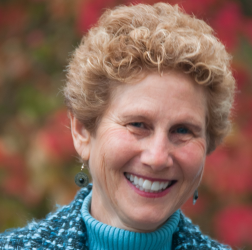
clinical social worker in Atlanta who has 35 years’ experience working with the elderly and their families.
For those with dementia, even showing them pictures of relatives can be of benefit. “Staff talking with elders with dementia about how much they are loved by their family members and perhaps bringing up memories can ease some of their potential anxiety. There is no doubt that the family members’ physical presence often is very calming and provides comfort for elders with dementia,” said Kriseman, whose private practice is called Geriatric Consulting Services.
“For elders who do have cognitive abilities, for many, their family members often provide comfort and connection to their family life. Thus, they will most likely miss not seeing their family members and may not understand social distancing,” she said. In addition to social media that permit face-to-face contact, more old-fashioned forms of communication, such as cards and letters, also are reminders that their family cares.
“My biggest concern, though, is that family members are often the ‘eyes and ears,’ in essence the advocates for the elders living in these communities,” bringing to the staff’s attention concerns about their relative’s care, a critical issue at all nursing homes and assisted-living communities, Kriseman said.
Group dining will continue at Jewish HomeLife facilities, “subject to change based on our assessment of risk,” according to a letter to residents and their families from Tabak and Jeff Gopen, JHL’s chief operating officer. Outings will be limited to “essential trips” to the grocery (for those in independent living), pharmacy or medical appointments. The use of food delivery services will be encouraged and families of assisted-living residents “can shop and have essentials delivered.”
“Buses will be sanitized before and after all trips” and “Upon returning, residents will be screened, required to wash their hands (with assistance if needed), and we will sanitize any assistive devices (canes, walkers, wheelchairs, etc.),” the letter said.
All of the on-campus facilities are receiving extra maintenance. “We have expanded those infectious disease protocols,” including more rigorous cleaning of surfaces and washing of materials, Tabak said.
Now that Schwartz has returned to Berman Commons after a brief stay at the Aviv Rehab Center to recover from injuries sustained in a fall, the limitations on her mother’s movements are welcomed by her daughter, Melissa Sacks, of Atlanta. “I feel fine, because I know she’s with her friends. She felt so secure with Berman Commons that I knew mentally she would be so much more comfortable being there,” said Sacks, who made light of her mother’s “let’s have an adventure” attitude.
For her part, “I’ll be having a rather quiet celebration” of her birthday, Schwartz said.
Jackson, who has worked with other senior residences, assumed his position at the Breman Jewish Home March 1, just as the public response to the coronavirus was escalating. “We can’t let visitors come in for obvious reasons, because this is the most vulnerable population. The goal is to keep this virus out of the home,” he said, referencing the Life Care Center in Kirkland, Wash., where COVID-19 has been blamed for the deaths of more than two dozen residents and the illness of nearly 100 other residents and several dozen employees.
Asked if this is most severe health crisis he has encountered in 40 years working in the elderly care home industry, Tabak said, “From an infectious disease perspective, absolutely. The flu kills more people than almost anything, but what makes this one more stressful and filled with such anxiety is that we have very limited capacity for testing and, of course, there is no known cure.
“We are doing everything that we can to protect the safety of our residents, through the medical advice we continue to receive and the incredibly dedicated staff that are working diligently to protect the frail, elderly adults for whom we care,” Tabak said. “I want to reassure everyone that if they have a need for our services, please continue to reach out and contact us.”
The Jewish Federation of Greater Atlanta include support for elderly services as among the reasons it launched a COVID-19 emergency response fund. The fund will help meet “increased costs for masks, gowns, and gloves for clinical team members who are caring for older adults in our residential facilities” and “increased needs for services to support our older adults living in their homes, including expanded phone support, food delivery, and increased transportation costs for supply deliveries,” according to a Federation statement.
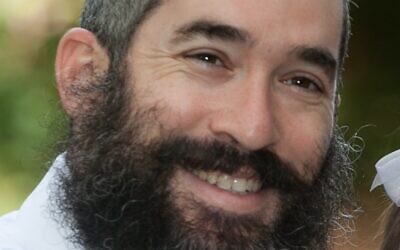
Elsewhere in the community, Chabad Intown has closed the space used by its Hebrew school and preschool for at least two weeks. “The directors and teachers have done an amazing job preparing and teaching online through Zoom, video and
phone. This will continue until we open physically again,” Rabbi Eliyahu Schusterman said in a statement. Chabad Intown also has canceled its community events and prayer services for the next few weeks. Its Intown Jewish Academy will continue to offer class on its YouTube channel. “Our facility is closed but our hearts are open and available to anyone in need in any way we can be of service,” Schusterman said.
The 20th annual Atlanta Jewish Film Festival concluded on Feb. 27, but AJFF is a year-round operation. “Sadly, circumstances since then require we temporarily

suspend Atlanta Jewish Film Festival programming until further notice. The unprecedented safeguards now being enacted will help protect not only each of us individually, but also the welfare of our families, friends and neighbors,” AJFF’s executive director Kenny Blank said in a statement.
And the Jewish-themed play “Indecent,” which opened at Theatrical Outfit March 4 to positive reviews, was forced to bring the curtain down well before its planned March 29 closing when the city of Atlanta limited gatherings to 50 participants.



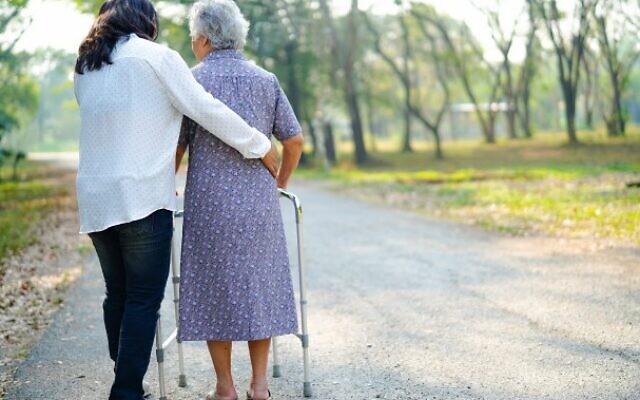
comments